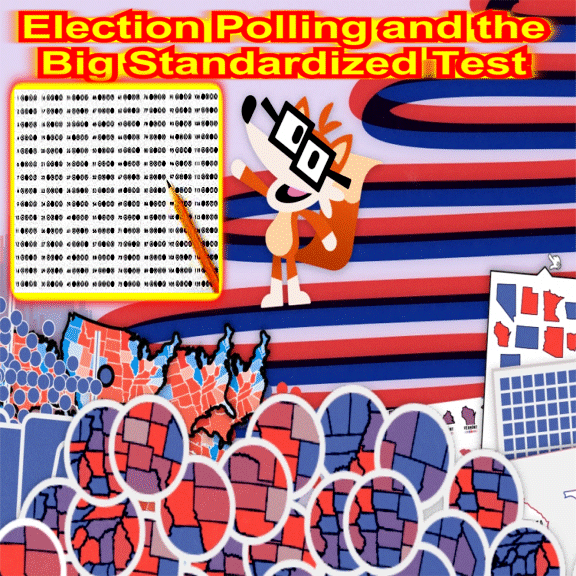Election Polling and the Big Standardized Test
From the Washington Post to the Wall Street Journal to the Atlantic and beyond, writers weeks after the election castigating the pollsters for yet another less-than-stellar year. But education writer Larry Ferlazzo moved on to another question—”Could Polling Errors in the 2020 Election Teach Us Something About The Use Of ‘Data’ In Education.”
He’s onto something there. Thinking about the Big Standardized Test from a polling perspective helps illuminate why the tests themselves, and the data-driven philosophy in education, have worked out so poorly.
After all, those big “measure everyone” standardized math and reading tests that states are mandated to give every year are similar to opinion polls—they are trying to measure and quantify what is going on in peoples’ heads. And to work, there are several things the data-gatherers have to get right.
Ask the right questions.
For an election poll, this seems simple enough. “Which candidate are you going to vote for?” But trying to fold in other information like political leanings, positions on other issues, the strength of the voter’s opinions—that gets harder.
For math and reading tests, this part is trickier. Imagine, for instance, you want to know if a student can find the main idea of any piece of writing. Could you measure that by asking just a couple of multiple choice questions? How many questions do you think it takes to figure out whether or not CONTINUE READING: CURMUDGUCATION: Election Polling and the Big Standardized Test
After all, those big “measure everyone” standardized math and reading tests that states are mandated to give every year are similar to opinion polls—they are trying to measure and quantify what is going on in peoples’ heads. And to work, there are several things the data-gatherers have to get right.
Ask the right questions.
For an election poll, this seems simple enough. “Which candidate are you going to vote for?” But trying to fold in other information like political leanings, positions on other issues, the strength of the voter’s opinions—that gets harder.
For math and reading tests, this part is trickier. Imagine, for instance, you want to know if a student can find the main idea of any piece of writing. Could you measure that by asking just a couple of multiple choice questions? How many questions do you think it takes to figure out whether or not CONTINUE READING: CURMUDGUCATION: Election Polling and the Big Standardized Test



